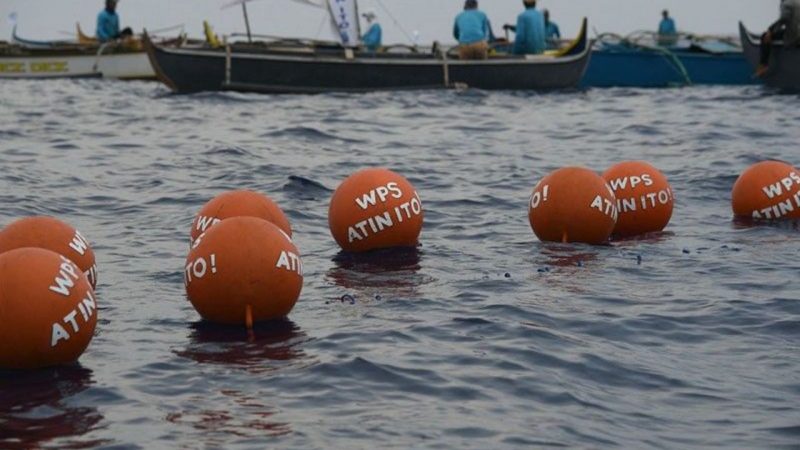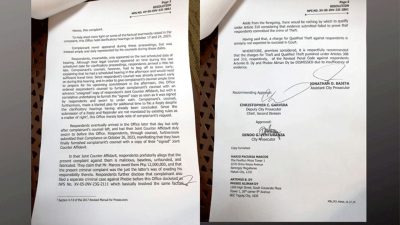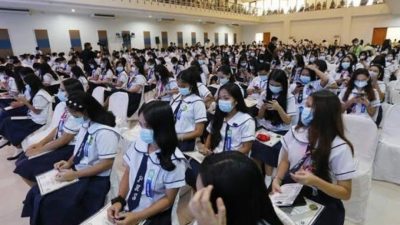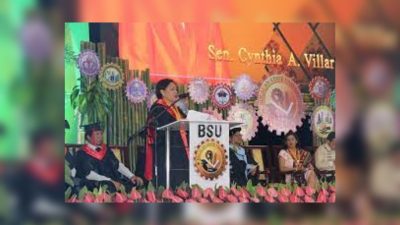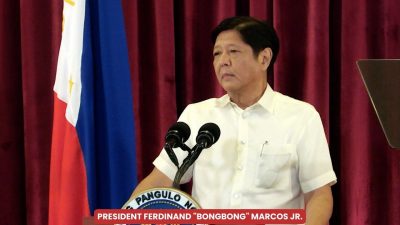MANILA – The killing of a Filipino in the West Philippine Sea (WPS) amid escalating tensions would be very close to an “act of war,” President Ferdinand R. Marcos Jr. stated emphatically.
During the question-and-answer session of the 21st International Institute for Strategic Studies (IISS) Shangri-La Dialogue in Singapore on Friday (31 May 2024), Marcos highlighted that the Philippine government would respond decisively if tensions in the disputed waters and China’s aggressive actions, such as the use of water cannons, lead to the death of a Filipino citizen.
“What would happen if there was an incident that ended up killing a Filipino serviceman, be it a Coast Guard or in the military and part of the Navy? Well, that would be – that would certainly increase the level of response, and if a willful act results in the death of a Filipino, not only a serviceman but even a civilian, that is very, very close to what we define as an act of war. We will respond accordingly,” he asserted.
Marcos made these remarks when asked what actions would prompt the Philippine government to invoke the decades-old Mutual Defense Treaty with the United States.
He noted that such incidents would heighten the response not only from the Philippine government but also from its “treaty partners.”
“We already have suffered injuries, but thank God, we have not yet reached the point where any of our participants, civilian or otherwise, have been killed,” the President said. “But once we reach that point, we would have crossed the Rubicon. Is that a red line? Almost certainly.”
PH Boosting Military Capability for Defense and Peace
Addressing his vision for the Philippines’ military posture by the end of his term, Marcos stated that the country is enhancing its defense capabilities to safeguard its sovereignty and territory against any foreign aggression. He mentioned the ongoing efforts to find suppliers for the country’s modernization program, Horizon 3.
“We hope these actions serve as a deterrence and work towards peace. This long-term plan of increasing the capabilities of our military and civilians, such as the Coast Guard, has been ongoing for many years now,” he said.
Marcos also emphasized in his keynote address that the country remains committed to diplomacy. “The Philippines remains committed to peace, which is the foundation of our constitutional order. We are dedicated to addressing and managing difficult issues through dialogue and diplomacy,” he added.
Commitment to Sovereignty and International Law
Marcos made history as the first Philippine leader to deliver a keynote address at the IISS Shangri-La Dialogue, the leading defense and security conference in the Asia-Pacific region. He reiterated his unwavering stance on the nation’s sovereign rights and jurisdiction over the WPS in his speech.
“In this solid footing and through our clear moral ascendancy, we find the strength to do whatever it takes to protect our sovereign home – to the last square inch, to the last square millimeter. The life-giving waters of the West Philippine Sea flow in the blood of every Filipino,” Marcos declared. “We cannot allow anyone to detach it from the totality of the maritime domain that renders our nation whole. As President, I have sworn to this solemn commitment from the very first day that I took office. I do not intend to yield. Filipinos do not yield.”
Marcos also stressed that any action in the South China Sea must conform to the international order. “Any effort to resolve maritime differences in the East China Sea and the South China Sea must be anchored on international law, particularly UNCLOS. We must accord due regard to the legitimate interests of all parties and respect legally-settled rights,” he said.
He was referring to the 1982 United Nations Convention on the Law of the Sea (UNCLOS), or “The Law of the Sea Convention,” which serves as the basis for the Philippines in implementing laws concerning the WPS.
The dialogue was attended by Singapore’s officials, including President Tharman Shanmugaratnam, Prime Minister Lawrence Wong, and Senior Minister Lee Hsien Loong, along with IISS Executive Chairman Sir John Chipman and government officials from the Philippines and other countries worldwide.
(Rep. by el Amigo/With reports from PNA)

